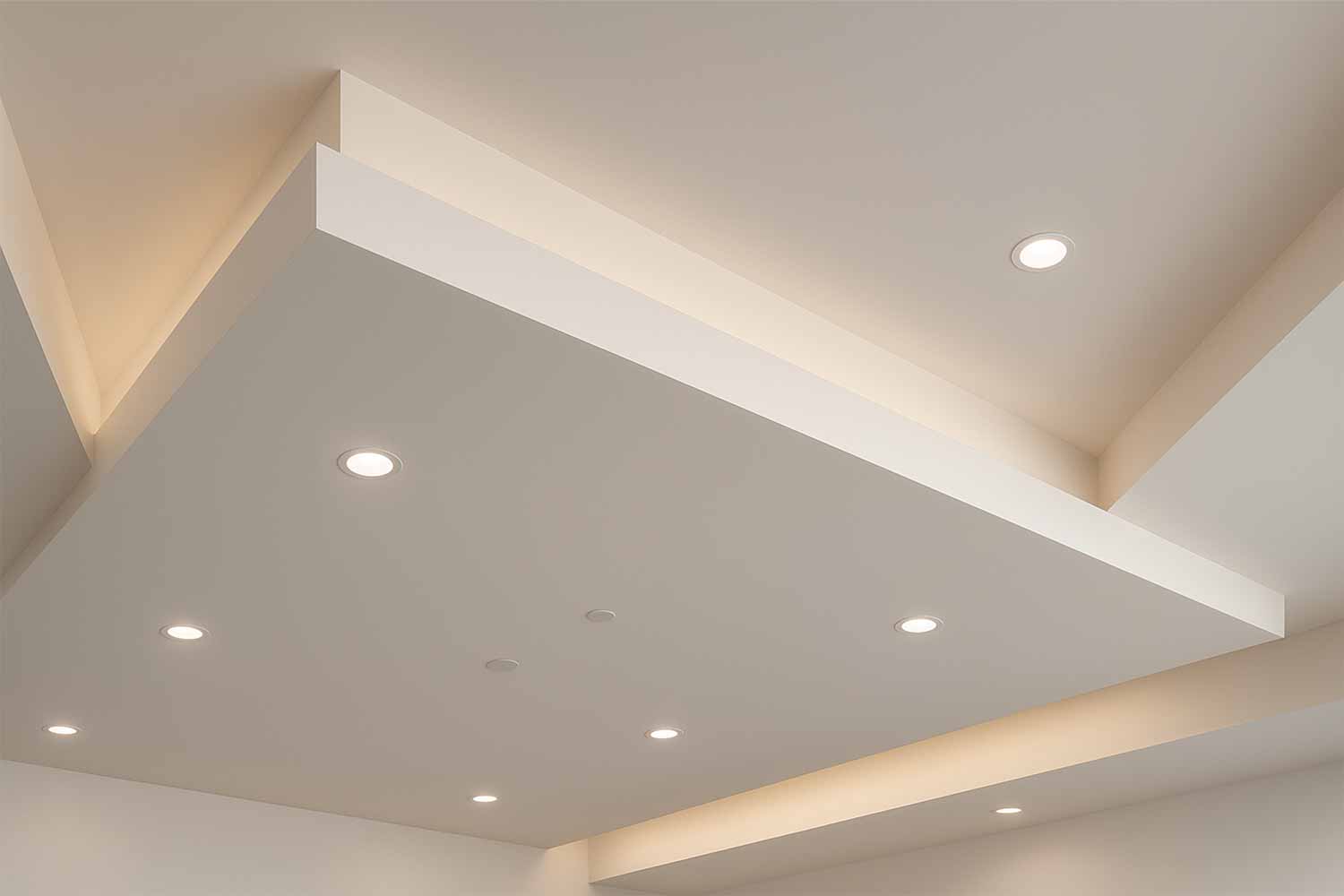Picture this: you’re in the midst of building your home, and suddenly, you decide an extra window or a built-in bookshelf would just elevate the space.
But have you made a contract with your builder to make extra changes?
Without a written agreement in place, each alteration becomes a potential source of conflict, leaving both parties vulnerable to misunderstandings and unexpected expenses.
A construction contract outlines the protocol for handling change orders, including how alterations are documented, approved, and reflected in the final project cost. But choosing the right construction contract, whether fixed-price, cost-plus, or time and materials, is like picking the perfect paint colour for your new space—it depends on your project.
Let’s delve into the different construction contract types and discover which one best fits your construction project.
What is a Building Construction Contract?
A building construction contract is a legally binding agreement between multiple parties that outlines the terms and conditions for carrying out construction work. It’s a document that sets out the scope of work, the timeline for completion, the cost of the project, payment terms, the responsibilities of each party, and other important details related to the building work. Building contracts serve as the foundation for the relationship and expectations between the project owners and contractors.
When do you need a home building contract?
Anytime you’re spending a significant amount of money on a home construction or renovation project, or if the value of the work being done exceeds $5,000 (including taxes), you should have a written contract that outlines all the details of the job. This protects both you and the contractor by clearly stating what’s expected, what’s being paid for, and what happens if things don’t go as planned.
Don't Settle for Less—Build Excellence with Dhursan
10 Different Types of Construction Contracts
Lump Sum Contract
A lump sum contract, often known as a fixed price contract, is an arrangement in which the contractor commits to finishing the project for a set fee. The price is determined up front, giving both the owner and the contractor assurance. The contractor is responsible for predicting expenses accurately to avoid potential losses.
Lump sum contracts are commonly used for projects with a well-defined scope of work and limited potential for changes, such as residential building projects or small-scale renovations.
| Pros | Cons |
|
|
Cost-Plus Contract
In a cost-plus contract, the contractor is reimbursed for the actual costs incurred during the project, including labour, materials, and overhead, plus a predetermined fee or percentage of profit. This type of contract offers greater flexibility for both parties, as it allows for adjustments to the scope of work and materials as needed. However, few cost-plus contracts include clauses with “not to exceed” costs.
Cost-plus contracts are often used for projects with uncertain or evolving requirements, research and development projects, or projects with a high level of customisation.
| Pros | Cons |
|
|
Ready to start your custom home build on the right foot? We will ensure clarity and success with the right building contract. Contact us today.
Time and Materials Contract
Under a time and materials contract, the contractor is paid based on the time spent and materials used to complete the project, plus a markup for profit and overhead. This contract provides flexibility in terms of scope and pricing.
Time and materials contracts are often used for projects with uncertain or evolving requirements, emergency repairs, or projects with a limited duration.
| Pros | Cons |
|
|
Unit Price Contract
A unit price contract involves pricing the work based on specific units of measurement, such as square footage or cubic yards. The contractor is paid a predetermined rate for each unit of work completed, providing greater transparency and accountability for both parties.
Unit price contracts are commonly used for projects with repetitive tasks or standard components, such as road construction, utility installations, or landscaping.
| Pros | Cons |
|
|
Guaranteed Maximum Price (GMP) Contract
A GMP contract sets a maximum price for which the contractor is responsible, providing cost certainty for the owner while allowing the contractor to earn additional profit if costs are kept below the maximum. It combines the elements of a cost-plus contract with a cap on costs, providing a balance of flexibility and cost control.
GMP contracts are often used for projects with uncertain or evolving scopes, such as large-scale commercial construction projects, infrastructure projects, or projects with significant design changes.
| Pros | Cons |
|
|
Cost Reimbursable Contract
A cost-reimbursable contract generally refers to any contract where the owner reimburses the contractor for allowable or pre-approved costs incurred during the project. The contractor’s profit is usually added to the reimbursed costs, and it could be in the form of a fixed fee or percentage.
Cost-reimbursable contracts are commonly used for research and development projects, projects with a high degree of uncertainty or complexity, or projects where the scope cannot be precisely defined upfront.
| Pros | Cons |
|
|
Design-Build Contract
A design-build contract combines design and construction services under a single contract, streamlining the project delivery process and potentially reducing costs and schedule durations. This type of contract encourages collaboration between the planning and building teams, resulting in a more efficient and cohesive project.
Design-build contracts are often used for large-scale projects, such as commercial buildings, infrastructure projects, or projects with fast-track schedules.
| Pros | Cons |
|
|
Planning a build? Ensure its headache-free! We will begin construction with the ideal contract for a smooth journey. Contact us today.
Integrated Project Delivery (IPD) Contract
An IPD contract involves collaboration among all project stakeholders from the outset, with shared risks and rewards based on project outcomes. This type of contract promotes a collaborative and transparent approach to project delivery, with the goal of maximising value and minimising waste throughout the project lifecycle.
PD contracts are often used for complex projects with multiple stakeholders, such as healthcare facilities, large public infrastructure projects, or projects that prioritise sustainability and innovation.
| Pros | Cons |
|
|
Construction Management (CM) Contract
A CM contract involves hiring a construction manager to oversee the project on behalf of the owner, providing expertise in project planning, coordination, and execution. This type of contract allows the owner to benefit from the construction manager’s knowledge and experience while retaining control over the project’s design and construction.
CM contracts are often used for large, complex projects where the owner seeks professional construction management services, such as public infrastructure projects or commercial developments.
| Pros | Cons |
|
|
Transform Your Vision into Reality with Dhursan Construction
Incentive Construction Contract
An incentive construction contract is designed to motivate the contractor to meet or exceed certain project goals by offering financial incentives. These incentives can be tied to various performance metrics, such as early completion, cost savings, or quality benchmarks.
Incentive construction contracts are often used for projects where specific performance goals are critical, such as time-sensitive projects, projects with strict quality requirements, or projects with a strong emphasis on cost savings.
| Pros | Cons |
|
|
How to Choose the Right Construction Contract?
- Know Your Project: Understand what you want to build, how big it is, and how much you can spend.
- Research Contract Types: Familiarise yourself with the different types of contracts available, such as lump sum contracts, cost-plus contracts, time and materials contracts, design-build contracts, and unit price contracts:
- Think About Risks: Consider who takes responsibility if something goes wrong—like delays or mistakes.
- Check Local Rules: Make sure you follow any laws or rules about building contracts in your area.
- Find a Good Builder: Look for a builder who is experienced in the type of project you’re doing.
- Match Complexity: Some contracts work better for simple projects, while others are better for complex ones. For example:
- Lump-Sum: Good for clear, simple projects with a fixed plan.
- Cost-Plus: Useful for projects where the scope might change, like renovations.
- Design-Build: Great for projects where the design is as important as the construction.
- Ask for Advice: Talk to experts like lawyers or construction pros to help you understand your options.
- Talk About Details: Once you’ve picked a contract type and a builder, discuss all the details to make sure everyone agrees.
Summing Up!
Understanding the various types of construction contracts is crucial for ensuring successful and smooth project execution. Each contract type offers different advantages and considerations, catering to specific project requirements, risk allocations, and desired outcomes.
Whether it’s a lump sum contract providing fixed pricing, a cost-plus contract offering flexibility, or a design-build contract streamlining coordination, selecting the right contract type is essential. It sets the foundation for clear communication, risk management, and dispute resolution throughout the construction process.
At Dhursan Construction, our proficient team can help you understand your options, choose the right contract for your needs, and guide you through the entire construction process with assurance. Reach out to us today for free consultation.




